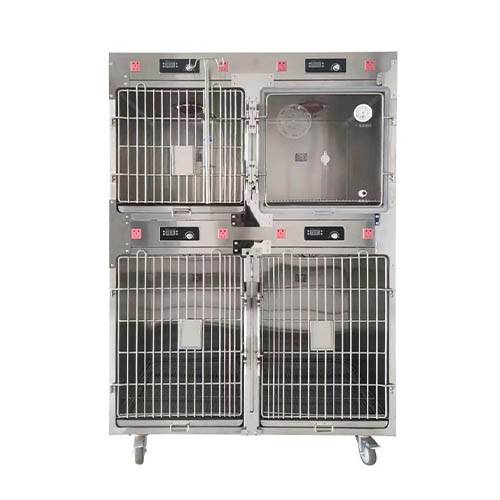Адрес
304 North Cardinal St.
Дорчестер-центр, Массачусетс 02124
Часы работы
С понедельника по пятницу: с 7:00 до 19:00.
Выходные: 10.00 - 17.00
Адрес
304 North Cardinal St.
Дорчестер-центр, Массачусетс 02124
Часы работы
С понедельника по пятницу: с 7:00 до 19:00.
Выходные: 10.00 - 17.00

Veterinary cages are indispensable tools in veterinary clinics and hospitals, providing essential housing and containment for animals undergoing treatment, recovery, or observation. The quality of these cages significantly influences the well-being of the animals and the operational efficiency of the veterinary facility. This blog delves into the critical aspects of quality in veterinary cages, exploring their importance, key considerations when choosing them, benefits of investing in quality options, and practical insights through case studies and success stories.

Veterinary cages are indispensable tools in veterinary clinics and hospitals, providing essential housing and containment for animals undergoing treatment, recovery, or observation. The quality of these cages significantly influences the well-being of the animals and the operational efficiency of the veterinary facility. This blog delves into the critical aspects of quality in veterinary cages, exploring their importance, key considerations when choosing them, benefits of investing in quality options, and practical insights through case studies and success stories.
Quality veterinary cages serve as safe and secure environments for animals, ensuring their comfort and safety during their stay at the clinic or hospital. Several key factors highlight the importance of investing in high-quality cages:
When selecting veterinary cages, several factors should guide decision-making to ensure they meet the specific needs and standards of the veterinary practice:






Investing in high-quality veterinary cages yields numerous benefits that positively impact the clinic’s operations and reputation:

To illustrate the impact of quality veterinary cages, consider the following examples from veterinary practices that have embraced premium cage solutions:
| Clinic Name | Case Study Summary |
|---|---|
| Paws & Claws Veterinary Clinic | By upgrading to stainless steel cages with removable partitions, the clinic improved infection control and patient comfort, leading to reduced recovery times. |
| Wild Care Wildlife Rehabilitation Center | Adoption of modular cage systems allowed for flexible space utilization and better isolation of wildlife patients, minimizing stress and improving rehabilitation outcomes. |
These examples underscore how strategic investments in quality veterinary cages translate into tangible benefits for both animal patients and veterinary professionals.
In conclusion, the importance of quality veterinary cages cannot be overstated in modern veterinary practice. From ensuring safety and comfort to optimizing operational efficiency and client satisfaction, the right cages play a crucial role. Veterinary professionals should prioritize durability, hygiene, and animal welfare when selecting cages, thereby creating a safer and more effective environment for their patients and enhancing the overall quality of care provided.
В: Как часто следует veterinary cages быть очищены?
A: Veterinary cages should be cleaned daily and sanitized between each use to prevent the spread of infections and maintain hygiene standards.
Q: What materials are best for veterinary cages?
A: Stainless steel is often preferred for its durability, resistance to corrosion, and ease of cleaning. High-quality plastics can also be suitable, offering lightweight options with comparable durability.
В: Как можно veterinary cages be customized for specific needs?
A: Cages can be customized with features such as adjustable partitions, specialized flooring, and integrated medical equipment mounts to meet specific clinic requirements and enhance patient care.